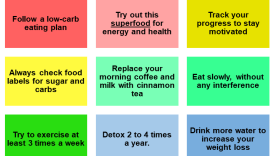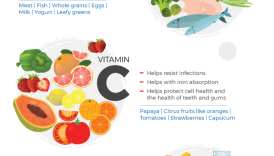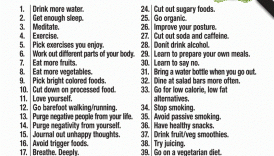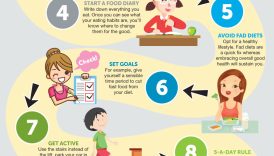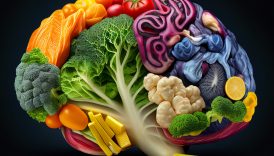Revitalize Your Body and Mind with Living Good Vitamins: A Game-Changer in Health and Happiness

Importance of Vitamins in Well-being
Vitamins play a crucial role in maintaining our overall well-being. Imagine vitamins as tiny powerhouses that help our bodies function optimally. They support essential bodily functions, bolster our immune system, and promote a healthy metabolism. For instance, a friend of mine swears by her daily intake of Vitamin C, claiming it helps ward off colds during winter. It’s amazing how such small nutrients can have a big impact on our health! Here are some ways vitamins contribute to our wellness:
- Revitalize Your Body and Mind with Living Good Vitamins: A Game-Changer in Health and Happiness
- Importance of Vitamins in Well-being
- Overview of the Blog Post
- Understanding Essential Vitamins
- Vitamin A: The Key to Healthy Vision
- Vitamin C: Boosting Immune System
- Benefits of Living Good Vitamins
- Increased Energy Levels
- Improved Cognitive Function
- Incorporating Vitamins into Your Diet
- Best Food Sources for Vitamin D
- Nutritional Supplements: Pros and Cons
- Vitamins for Mental Health
- Vitamin B Complex: Stress Relief
- Omega-3 Fatty Acids: Enhancing Mood
- Vitamins for Physical Health
- Vitamin K: Bone Health
- Vitamin E: Skin and Hair Benefits
- Immune Support: Vitamins A, C, and D can enhance your body’s ability to fight illness.
- Energy Production: B vitamins, particularly B12, are vital for converting food into energy.
- Bone Health: Vitamin K and D work together to support bone density and health.
These examples highlight just a fraction of what vitamins do behind the scenes.
Overview of the Blog Post
In this blog post, readers will embark on a journey through the world of vitamins and discover their significance in physical and mental health. The sections will cover:
- Understanding Essential Vitamins – A closer look at powerhouse vitamins like A and C.
- Benefits of Living Good Vitamins – Insights into how vitamins can elevate energy and cognitive function.
- Incorporating Vitamins into Your Diet – Practical tips on food sources and the role of supplements.
- Vitamins for Mental Health – Investigating the connection between vitamins and emotional well-being.
- Vitamins for Physical Health – Evaluating the benefits for our bodies, including skin and bone health.
Get ready to unlock the secrets of vitamins and harness their potential for a healthier, more vibrant life!
Understanding Essential Vitamins
Vitamin A: The Key to Healthy Vision
When it comes to maintaining healthy vision, Vitamin A stands out as a vital nutrient. This powerhouse vitamin is essential for the formation of rhodopsin, a pigment in the retina that allows us to see in low light. Without adequate Vitamin A, one might experience difficulty seeing in dim conditions—a condition known as night blindness. Many people, like my cousin who loves night photography, have learned the importance of this vitamin the hard way. After struggling with vision issues during her nighttime shoots, she started incorporating foods rich in Vitamin A into her diet, such as:
- Carrots: A classic choice, they’re not just a myth!
- Sweet Potatoes: Packed with beta-carotene, these can easily be baked or mashed.
- Spinach and Kale: Leafy greens loaded with essential nutrients.
By including these foods, she noticed significant improvements in her night vision, highlighting just how impactful Vitamin A can be.
Vitamin C: Boosting Immune System
Vitamin C is another vitamin that plays a pivotal role in bolstering our immune system. Think of it as your body’s natural defense mechanism. It acts as an antioxidant, protecting cells from damage and aiding in the production of white blood cells, which are essential for fighting infections. During cold season, many turn to Vitamin C supplements to fend off illness. My friend takes her daily dose of Vitamin C, claiming it’s the reason she rarely catches a cold. Some great sources of Vitamin C include:
- Citrus Fruits: Oranges, lemons, and grapefruits are well-known for their high Vitamin C content.
- Bell Peppers: Surprisingly, they contain even more Vitamin C per serving than oranges!
- Berries: Strawberries and blueberries are not only delicious but also nutrient-packed.
By regularly consuming Vitamin C-rich foods, individuals can enhance their immune function and stay healthier throughout the year. As we explore further in this blog, the impact of vitamins on our health becomes increasingly evident!
Benefits of Living Good Vitamins
Increased Energy Levels
When it comes to boosting energy levels, vitamins are the secret tools in your wellness toolbox. Many individuals often turn to caffeine or energy drinks for a quick pick-me-up, but what if a natural, vitamin-rich approach could provide that same energizing boost? B vitamins, in particular, are vital for energy production in the body. For instance, Vitamin B12 helps convert food into glucose, which our cells use for energy. A friend of mine started feeling fatigued during the workday and discovered she was low on B vitamins. After making simple dietary changes, like adding more whole grains, nuts, and leafy greens to her diet, she noticed a significant increase in her energy levels, allowing her to power through her tasks with ease. Here are some foods rich in B vitamins:
- Whole Grains: Brown rice, quinoa, and oats are excellent sources.
- Meats and Poultry: Chicken breast and lean beef help provide B12.
- Legumes: Beans and lentils are great plant-based options.
Improved Cognitive Function
Not only can vitamins help you feel more energized, but they also play a crucial role in enhancing cognitive function. Vitamins, particularly B vitamins, Vitamin D, and antioxidants like Vitamin E, are essential for maintaining brain health. Several studies suggest that individuals with adequate levels of these vitamins tend to have better memory and focus. A personal anecdote comes from my father, who, in his late 60s, began consuming more Vitamin E-rich foods like almonds and avocados. He reported feeling sharper in conversations and more alert while reading. Incorporate these brain-boosting foods for improved cognitive function:
- Fatty Fish: Packed with Omega-3 fatty acids, which support brain health.
- Nuts: Walnuts and almonds provide Vitamin E and healthy fats.
- Leafy Greens: Spinach and kale also contribute vital nutrients for optimal brain performance.
By focusing on a vitamin-rich diet, individuals can experience increased energy levels and enhanced cognitive function, paving the way for a more productive and fulfilling life.
Incorporating Vitamins into Your Diet
Best Food Sources for Vitamin D
Vitamin D, often referred to as the “sunshine vitamin,” is essential for maintaining healthy bones and a robust immune system. Although our bodies can produce Vitamin D through sunlight exposure, many people still struggle to get enough, especially during winter months. That’s where food sources come in! Growing up, my family always emphasized the importance of seafood and dairy for bone health. Recently, I’ve learned just how crucial they are for boosting Vitamin D levels as well. Here are some excellent food sources to consider:
- Fatty Fish: Salmon, mackerel, and sardines are some of the richest sources of Vitamin D.
- Fortified Foods: Many milk and cereal brands are fortified with Vitamin D, making it easier to incorporate into your diet.
- Egg Yolks: Including eggs in your meals offers a good dose of Vitamin D as well.
By adding these foods to your daily diet, you can significantly increase your Vitamin D intake and promote better health.
Nutritional Supplements: Pros and Cons
While whole foods are the best way to get vitamins, sometimes supplements can play a supportive role, especially for those with dietary restrictions or specific health conditions. However, it’s essential to weigh the pros and cons before diving into the supplement world. Pros:
- Convenience: Supplements are an easy way to boost vitamin intake, particularly when you’re on-the-go.
- Targeted Nutrient Delivery: They can be beneficial for individuals with deficiencies or specific needs, such as pregnant women or older adults.
Cons:
- Potential Overdose: It’s possible to consume too much of certain vitamins, leading to adverse health effects.
- Not a Substitute for Whole Foods: Supplements can’t replace the complete nutrition provided by a balanced diet.
For instance, my sister began using Vitamin D supplements during the winter months when sunlight was scarce. While they provided the additional boost she needed, she always paired them with Vitamin D-rich foods to create a balanced approach. In conclusion, while it’s ideal to focus on natural food sources, understanding how and when to use supplements can help individuals maximize their vitamin intake for better health.
Vitamins for Mental Health
Vitamin B Complex: Stress Relief
When it comes to managing stress, the Vitamin B complex works like an unsung hero. Comprising several B vitamins—including B1, B2, B6, and B12—this group plays a vital role in brain function and mood regulation. Personally, I remember an incredibly stressful period during college when I was overwhelmed with exams. A friend recommended I focus on B vitamins, and to my surprise, it made a noticeable difference in my ability to cope. Here’s how Vitamin B complex can aid in stress relief:
- Supports Energy Production: B vitamins help convert food into energy, reducing fatigue, which can worsen stress.
- Regulates Mood: They are crucial for synthesizing neurotransmitters like serotonin and dopamine, which play a key role in mood stabilization.
Some excellent sources of Vitamin B include:
- Whole Grains: Oats and brown rice are nutrient-rich options.
- Meat and Dairy: Lean meats, eggs, and yogurt are also great sources.
- Leafy Greens: Spinach and kale provide many B vitamins as well.
Omega-3 Fatty Acids: Enhancing Mood
Another essential nutrient for mental health is Omega-3 fatty acids. Known for their anti-inflammatory properties, Omega-3s are linked to improved brain health and mood enhancement. In fact, during times of heightened anxiety or sadness, I find that incorporating Omega-3-rich foods helps me feel more balanced. Studies have shown that Omega-3 fatty acids can:
- Reduce Symptoms of Depression: Regular intake may lower the risk of developing depression.
- Support Cognitive Function: They improve brain connectivity, enhancing communication between neurons.
Incorporate these Omega-3-rich foods into your diet:
- Fatty Fish: Salmon, mackerel, and sardines are excellent choices.
- Nuts and Seeds: Walnuts and flaxseeds are also high in Omega-3s.
- Plant Oils: Flaxseed oil or chia seeds can be easily added to salads or smoothies.
By emphasizing these nutritional components, individuals can cultivate better mental health and manage stress more effectively. Whether through natural food sources or mindful supplementation, vitamins can truly enhance emotional well-being.
Vitamins for Physical Health
Vitamin K: Bone Health
When it comes to maintaining strong bones, Vitamin K is often an overlooked hero. This essential vitamin plays a crucial role in bone metabolism by aiding in the production of proteins that are necessary for bone formation and mineralization. As someone who has always been active, I’ve learned how important it is to focus on bone health, especially as we age. Here’s how Vitamin K benefits bone health:
- Supports Bone Density: It helps retain calcium in the bones, reducing the risk of fractures.
- Collaborates with Vitamin D: Together, these vitamins work to keep bones strong and healthy.
Some of the best sources of Vitamin K include:
- Leafy Greens: Kale, spinach, and Swiss chard are packed with this nutrient.
- Cruciferous Vegetables: Broccoli and Brussels sprouts also provide a good amount of Vitamin K.
- Fermented Foods: Natto, a traditional Japanese dish made from fermented soybeans, is one of the richest sources.
Vitamin E: Skin and Hair Benefits
Shifting focus to the outside, Vitamin E works wonders for skin and hair health. Known for its antioxidant properties, it combats oxidative stress and helps maintain skin elasticity. A friend of mine, who battles dry skin, recently incorporated Vitamin E-rich products into her skincare routine and noticed significant improvements. Here are some of the benefits of Vitamin E:
- Promotes Skin Repair: It helps in healing damaged skin and reduces the appearance of scars.
- Enhances Hair Growth: Vitamin E improves blood circulation to the scalp, promoting healthier hair follicles.
Great sources of Vitamin E include:
- Nuts and Seeds: Almonds and sunflower seeds are not only tasty but also packed with Vitamin E.
- Vegetable Oils: Sunflower oil, safflower oil, and olive oil are excellent cooking options.
- Fruits: Avocados and kiwi also contribute substantial amounts of this vitamin.
By focusing on these vital vitamins, individuals can significantly enhance physical health, ensuring their bones remain strong while also promoting radiant skin and luscious hair. Making informed dietary choices leads to a healthier and more vibrant life!
